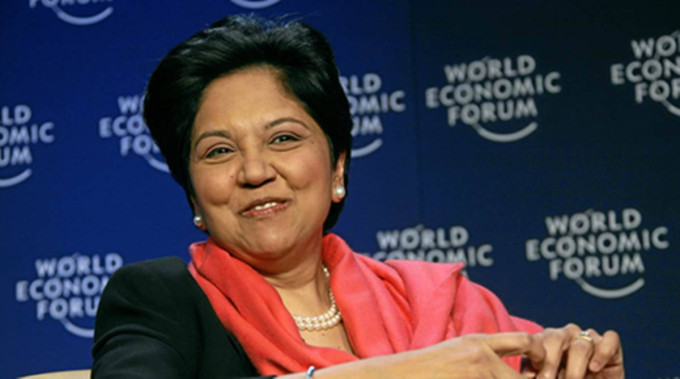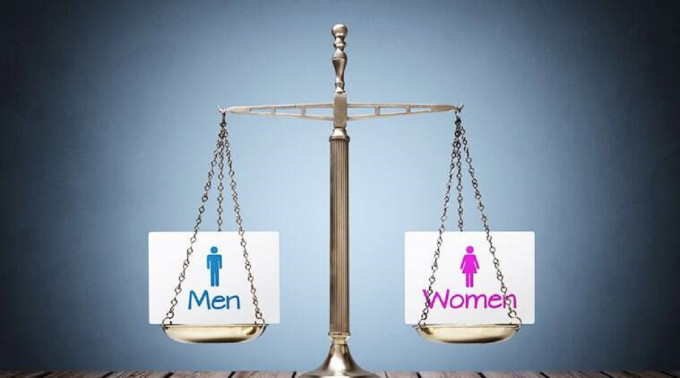Are urban Indian women crumbling under pressure of trying to have it all?
It was 2014. Indra K Nooyi, the CEO and chairperson of PepsiCo, was having a televised conversation with David Bradley, the chairperson of the American media conglomerate The Atlantic Media. “I don’t think women can have it all. I just don’t think so. We pretend we have it all. We pretend we can have it all,” Nooyi said.
The woman who seemed to have it all but didn’t.

Nooyi was consistently ranked on the Forbes list of The World’s 100 Most Powerful Women from 2008 to 2017, awarded the top spot on the Most Powerful Women in Business ranking by Fortune Magazine five years in a row. She now serves on the boards of Amazon and International Cricket Council (ICC).
When a woman who has, unarguably, not just reached the highest echelons of power in the business world but ruled them too has felt this way, we must contemplate why this happens with women. This assumes more significance in the backdrop of several studies conducted in 2023 and earlier finding that women have squarely shouldered the burden of increased stress and anxiety.
 Former PepsiCo CEO Indra Nooyi (Source: Express archive)
Former PepsiCo CEO Indra Nooyi (Source: Express archive)
This is not to say that men are not stressed. The pandemic exacerbated the amount of stress and anxiety we, as a people, were facing. However, the difference between the stress men and women face is in the nature and scope of it.
A first-of-its-kind global study involving more than 70 institutions, including India’s NIMHANS, published in the journal Proceedings of the National Academy of Sciences in May 2023, pointed to this fact. It found that in countries like India, which invariably rank higher on the Gender Inequality Index by the United Nations (UN), women exhibited long-lasting changes in how their brains have developed, especially in the regions where stress-induced conditions like depression and post-traumatic stress disorder are found, making them highly vulnerable to these conditions.
Why is this bias presenting itself?
According to Shilpa Khanna Thakkar, CEO, Chicnutrix, each of us plays multiple roles today, whether a father or a mother. The constant expectation not to miss any of these roles sets women and mothers apart.
“Consequently, there is an implicit pressure on them to excel in all areas — be it as a mom, a professional, a sister, or a daughter. Falling short of their best is often deemed unacceptable for women, leading to unequal expectations. For instance, even when a woman is at work or in a meeting, she is still expected to answer calls or manage household responsibilities. This unequal burden extends to societal expectations where women are assumed to take care of the house, fulfil traditional motherly duties, and excel in their professional lives,” the 44-year-old mother of two tells indianexpress.com in an interaction.
Prakriti Poddar, a wellbeing expert and the global head of mental health at Roundglass, a global wellness organisation, explained this is because women often take on the lion’s share of the emotional labour of managing families and household work.
A ‘Time Use Survey’ conducted in India by the National Sample Survey Office (NSSO) in 2019 found that nearly 81 per cent of women have undertaken domestic chores at some point during the day, compared to only 27 per cent of men who reported doing the same. Not to mention, these numbers have been wildly skewed ever since the pandemic struck.
 We place a premium on women’s ability to excel at home and work. (Source: A still from Nil Battey Sannata)
We place a premium on women’s ability to excel at home and work. (Source: A still from Nil Battey Sannata)
This statistic is the lived reality of 22-year-old Bhavya Gupta. The PR professional wakes up every day to do household chores before heading to the office. Her day ends with preparing dinner and doing the dishes.
“My family members say it is like training for me so that I won’t feel any pressure if I become a working woman after marriage,” she says.
This pressure is just as omnipresent in the workplace. Ruchika Bhagat, 49-year-old CA and MD at Neeraj Bhagat & Co., attributes this to the biased thinking that women are naturally more dedicated towards their families. “This puts unequal pressure on women employees to always be at the top of their game at the workplace.”
Prachi S Vaish, clinical psychologist, psychotherapist and feminine energy coach, explained that even though the pressure to perform is spread out equally between men and women, the biased expectation that a woman will not be able to perform up to the mark is more skewed.
“So in case a woman falls short on a task, it kind of becomes a self-confirming bias among bosses because they ‘expected’ it; whereas if a man falls short, his reasons will get space to be heard and acknowledged (unless they have established a pattern of making excuses),” Vaish says.
Priyank Pani, a 42-year-old journalist-turned-PR executive, confesses to having panic attacks and crying alone to vent out her frustrations. “But I guess women have also accepted this fact, and they hardly think that it’s ruining their mental or physical health. I overthink a lot.”
According to sociologist Pranay Aggarwal, who has served as India’s representative in UNESCO’s International Sociological Association, we place a premium on women’s ability to excel at home and work.
“We worship women in their roles as mothers and wives and we literally put them on a pedestal. So that puts a lot of pressure on women to be perfect wives, mothers, caregivers and homemakers. Likewise, he says, women are burdened with many societal expectations at the workplace, too.
Aggarwal quoted the Global Gender Gap Report of 2023 brought out by the World Economic Forum, adding that because of this pressure, there are only 25 per cent of women at the C-Soot level (executives, directors, CEOs, CFOs, etc).
 Even though the pressure to perform is spread out equally between men and women, the biased expectation that a woman will not be able to perform up to the mark is more skewed. (File image)
Even though the pressure to perform is spread out equally between men and women, the biased expectation that a woman will not be able to perform up to the mark is more skewed. (File image)
Measured at four parameters, political participation, economic empowerment, health as well as education, the global index has found that if things go as they are, it will take 131 years to achieve full gender parity, showing a significant slowdown in the overall rate of change.
It is an entirely different ballgame for women working in the informal sector and coming from strained financial backgrounds. A research paper published in the International Journal of Indian Psychology found women workers in the informal sector to be suffering from poor sleep due to perpetual worrying and overthinking. They also suffer from constant physical fatigue and display restlessness at work, making concentrating on the task at hand difficult.
How can you help yourself?
Poddar believes that change starts with you. Women need to take responsibility for their wellbeing and prioritise it by being kind to themselves and taking good care of their physical and mental health. According to her, women need to take even a few minutes each day for movement; focus on eating nourishing food; practise deep breathing, meditation, or mindfulness for their mental and spiritual wellbeing; and try to get seven to eight hours of good sleep at night.
“Whenever I’m overwhelmed, I like to use 4-7-8 breathing. I breathe in for a count of four, hold for seven, then exhale to a count of eight. After a few rounds, I can feel the tension melting,” Poddar adds.
According to Rucha Shrikhande Divekar, a clinical psychologist at Ruby Hall Clinic, Pune, encouraging women to prioritise their wellbeing is pivotal for achieving their personal and professional goals. “This shift in focus can help them navigate societal expectations effectively. It is essential to move away from the self-righteousness of past generations and create a more inclusive environment.”
Thakkar, a CEO herself, confesses to self-doubt creeping in but says using the first person to discuss achievements has helped her in the workplace. “It might be perceived as self-promotion, however, it’s crucial for women to embrace and communicate their successes confidently. By doing so, they not only validate their contributions but also inspire others in similar roles.”
 Women need to take responsibility for their wellbeing and prioritise it by being kind to themselves and taking good care of their physical and mental health. (Pic source: Pexels)
Women need to take responsibility for their wellbeing and prioritise it by being kind to themselves and taking good care of their physical and mental health. (Pic source: Pexels)
“Learn to say no and draw healthy boundaries. Do the same at home to free up more time for yourself. In most cultures, the household is a highly gendered space, with women shouldering the bulk of domestic and childcare tasks,” Poddar added.
Vaish, as a psychologist, agrees that while this is indeed a societal problem, it can still be tackled individually.
“Respect is not received by asking. It is garnered by creating your own high value. So, if you believe you are treated with bias, then learn to take an assertive stand, not an aggressive one. An aggressive stand (whether taken by a man or a woman) always makes the other party defensive. On the other hand, an assertive stand creates high value for you even if you sometimes don’t get what you want. Work with a coach/therapist, practice assertive scripts, and identify your own trigger points to operate from an empowered space,” Vaish advised.
Disclaimer: The copyright of this article belongs to the original author. Reposting this article is solely for the purpose of information dissemination and does not constitute any investment advice. If there is any infringement, please contact us immediately. We will make corrections or deletions as necessary. Thank you.





